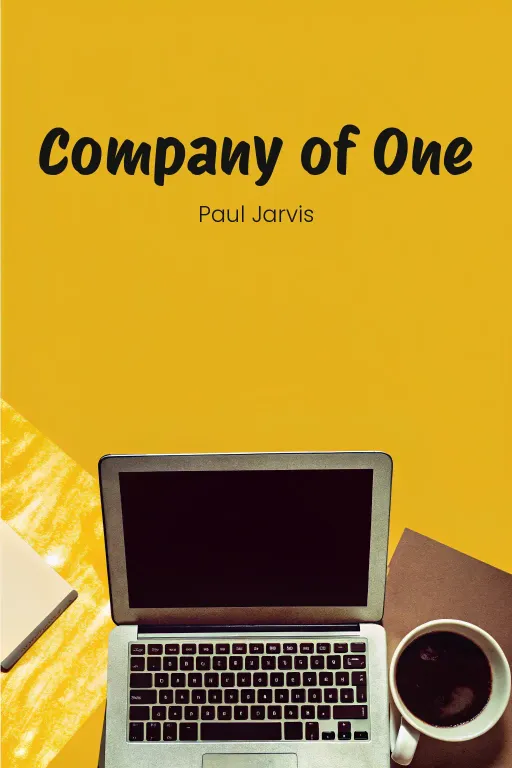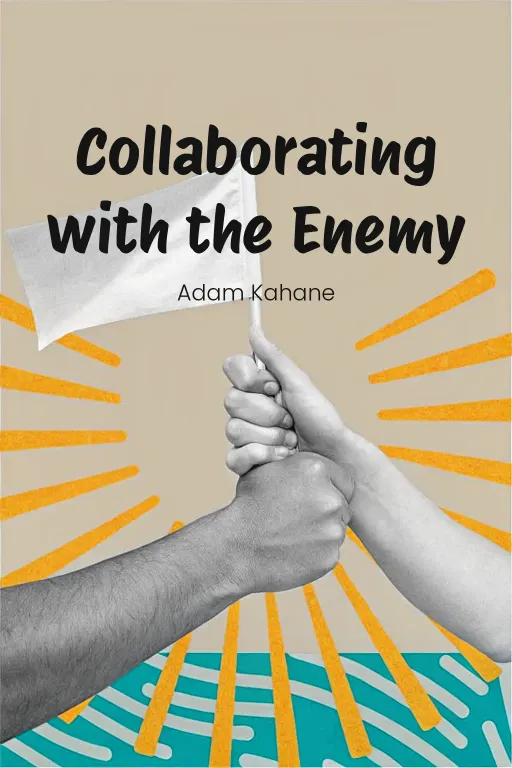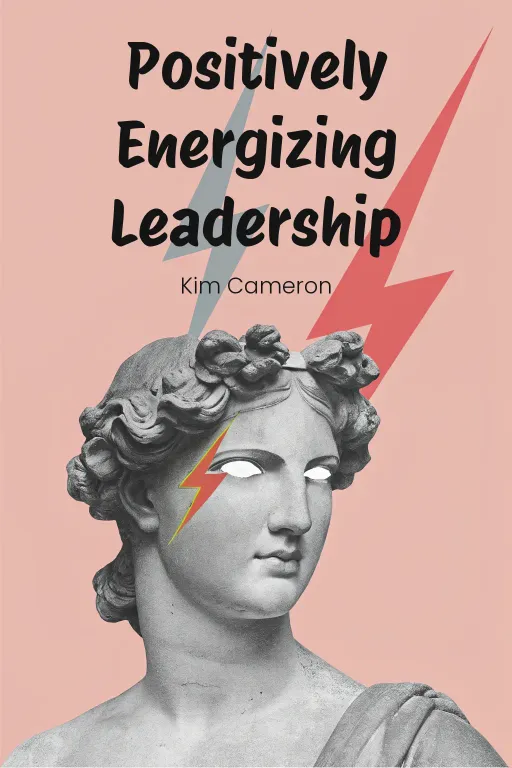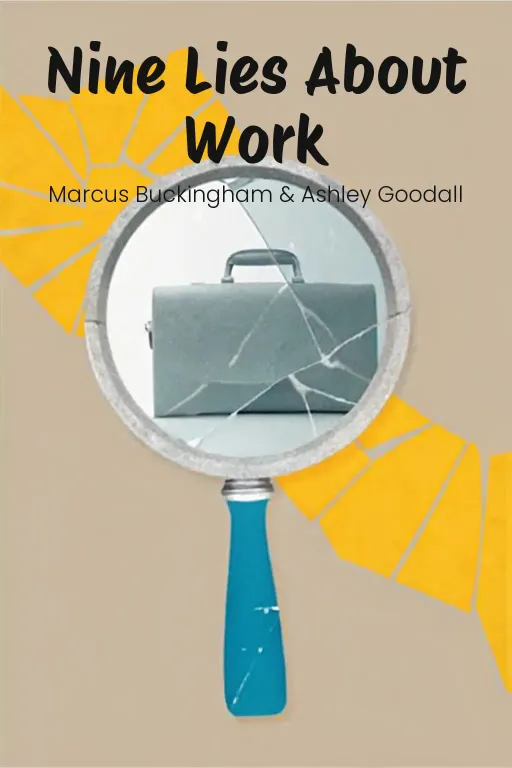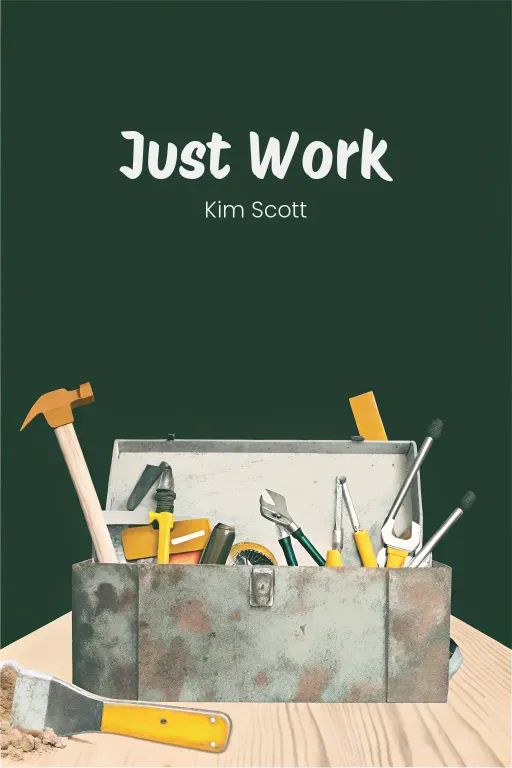
Culture Code: Action Trumps Intention
Podcast by Let's Talk Money with Sophia and Daniel
How to Create Your Business Culture
Introduction
Part 1
Daniel: Hey everyone, and welcome back! Today, we're diving into something crucial for any leader, team, or organization: building a culture that “actually” works. You know, not just some words on a wall or a slogan thrown around in meetings, but a real, living system that shapes who you are. Sophia: Exactly! Because let's be real, how many of those "company values" just feel like empty promises? Culture isn't what you “say” it is, it's what you “do”. And that's exactly what Ben Horowitz explores in his book, What You Do Is Who You Are. Daniel: Horowitz takes us on this incredible journey through history and business, showing us how leaders – from Toussaint Louverture and Genghis Khan to Netflix’s Reed Hastings – used very deliberate actions to shape cultures that not only achieved their goals but also lasted. It’s really about leading with purpose, setting those ethical boundaries, and making the hard choices that define what's acceptable – and what absolutely isn't. Sophia: Alright, so here's the plan for today's discussion. First off, we'll break down why actions – not just wishful thinking – are the true architectural plans of any culture. Think of it as, like, the difference between just “saying” you value teamwork and actually “demonstrating” it when things get tough, right? Daniel: Exactly. And then, we're going to look at how solid ethical frameworks are the foundation of trust. Whether you're leading a revolution or a tech company, the rules you enforce – and yes, even the ones you bend or break – really set the tone for everything else. Sophia: And finally, we're going to dive into inclusion. Genghis Khan, of all people, built an empire by embracing diversity long before it was a corporate buzzword. Believe it or not, his story has some surprising lessons for building stronger teams today. Daniel: Absolutely. Leadership is both an art and a discipline, and Horowitz gives us some really valuable tools to think about it through the lens of culture. It’s going to be a fascinating conversation. Sophia: Culture as action. Ethics as structure. Inclusion as strength. Okay, let's get into it.
Actions Define Culture
Part 2
Daniel: Okay, so let’s dive into this core idea: actions define culture. Basically, it's about how a leader’s “actions” speak louder than their “words”, right? It's about creating norms, setting boundaries, and establishing ethics through really consistent and thought-out actions. And you know, one of the best examples in the book is Toussaint Louverture. Sophia: Toussaint, yeah—the guy who led an army of formerly enslaved people to the only successful slave uprising ever. What really got me was that it wasn't just about military tactics. Louverture used culture to unite and really empower a population that had been oppressed. Imagine, you know, trying to build trust in a society where all they'd ever known was exploitation. Daniel: Exactly. It wasn’t just about, you know, troop movements or battle plans. Louverture totally had to rewrite the cultural norms. Take the rule about married officers not being allowed to have concubines, right? On the surface, maybe it looks like a minor thing, but actually, it’s cultural gold. He was basically saying, "Your integrity matters. If you can't keep your word in your personal life, how can I trust you with this movement?" Sophia: And honestly, that kind of symbolic act takes guts, really. I mean, in the middle of a revolution, focusing on personal ethics feels… counterintuitive, doesn’t it? Like, shouldn’t you just be saying, "Let's win the war first, and we'll sort out the morality stuff later"? Daniel: Right, but that’s where his genius was. Louverture knew that culture isn’t something you, like, “install” after you win—it’s the invisible thing that gets you there in the first place. By demanding people be accountable in their personal lives, he made a strong sense of trust and unity within the ranks. And that trust, obviously, was key to his army’s success. Sophia: And then there's the decision to rebuild the economy by telling freed workers they had to go back to the plantations—but, you know, with fair wages. That could have easily been seen as a betrayal, couldn't it? Like, "We just fought for our freedom, and now you're telling us to go back to work for the same people?" Daniel: I know, but Louverture was playing the long game. He rejected revenge and created a shared sense of responsibility. He knew that economic stability was vital if they wanted to keep their independence. So, instead of causing more violence, he linked ethical principles with practical actions. I mean, that’s transformative leadership on every level. Sophia: Right, and it's not just history. Horowitz links this back to modern business, showing how the same mindset works whether you're leading a revolution or trying to scale up a company. Like, Reed Hastings and Netflix. Daniel: Yes, absolutely, Netflix. Hastings really embodies this "actions over words" idea. You know, the moment he realized at Pure Software that trying to control problems with lots of rules doesn't work? That was key. What he learned was, when you put all your energy into strict rules, you end up micromanaging people into being just average. Sophia: Which defeats the point of building a culture, right? I mean, rules are easy to write down, but culture—real culture—is messy. At Netflix, Hastings didn’t just throw out the rulebook. What he did was focus on a framework of empowerment. Sure, there's no vacation policy or, like, dress code, but the expectation that you’ll be excellent at your job? That's not up for debate. It’s freedom, but with teeth. Daniel: Right, and his choices showed that he really connected values to actions. Like, how he shifted Netflix to streaming. Not including senior DVD team members in key strategy meetings? Harsh. But he made it clear that holding onto old ideas would sink the company. Hastings didn't just talk about being adaptable; he showed it. Sophia: So, does that make leaders like Hastings and Louverture visionary? Or just really cold pragmatists? I mean, it makes you wonder—if having this balance of ethics and accountability is so effective, why can’t more leaders do it? Daniel: Well, that's at the heart of Horowitz's argument: it isn't easy because it requires “courage”. Building culture through action means being consistent, planning ahead, and often upsetting people with your choices. But, more than that, it means believing that the small, ethical choices you make every day set the stage for the bigger ones. Sophia: That's so true. Whether it’s Louverture choosing integrity in a time of revolution or Hastings guiding his company into the streaming world, the lesson is pretty clear. Great leaders show their people the culture they want to build—not by writing memos or running campaigns, but by actually living it.
Ethical Decision-Making
Part 3
Daniel: Understanding how actions shape culture naturally leads us to the ethics of leadership. And this is fascinating, because ethical decision-making isn't just about legalities; it's the moral backbone that holds an organization together. It's about aligning daily decisions with your stated values. Sophia: Exactly, that's where things get real, right? The intersection of ethics and leadership is where you either build trust or watch your culture fall apart. Think of Uber under Travis Kalanick—major ethical implosion. Daniel: Oh, definitely. Uber is a clear example of what happens when ethics take a backseat to growth. Under Kalanick, their motto was "Always Be Hustlin'." Sounds good, but it encouraged rule-breaking and unchecked aggression. Sophia: And the result? Susan Fowler’s blog post was like an earthquake for Uber. Her story of harassment, reporting it, and being ignored because the guy was a "high performer"—it’s a perfect example of how not to handle ethics. Daniel: Precisely. Fowler’s situation exposed a deep organizational problem. By defending unethical behavior from "high performers," HR destroyed employee trust. The message was clear: results matter more than basic human decency. Sophia: Don't forget "Greyball," Uber's program to evade law enforcement. It's like they were actively trying to destroy trust. No wonder they hit rock bottom. Employees were fed up, turnover was insane, and being associated with Uber became morally questionable. Daniel: Right. Kalanick didn’t get that ethical leadership isn't a nice-to-have; it's fundamental. Ironically, the fallout allowed his successor, Dara Khosrowshahi, to show what ethical leadership could look like. Sophia: Khosrowshahi did a complete turnaround. He emphasized accountability and publicly committed to fixing Uber’s toxic culture. But why do companies need to crash and burn before taking ethics seriously? Why not build in transparency and accountability from day one? Daniel: Well, ethical leadership is hard. It requires foresight and a commitment to long-term integrity, even when short-term gains are tempting. Ben Horowitz points out that without ethical frameworks, companies lose their way. Sophia: Okay, so how do you even start building those frameworks? Where do leaders even begin? Saying "Be ethical!" is like telling a drowning person to just swim. Daniel: You start with tools like clearly defined ethical frameworks. It's not just "Don't harass people" or "Don't break the law." It's about defining accountability. Horowitz suggests routine ethical audits—looking at HR, management behavior, even turnover rates. Those are all warning signs. Sophia: Audits make sense. But how do you create a safe environment where people actually feel comfortable raising ethical concerns? That's got to be one of the toughest parts. Daniel: It is, and that’s where transparency is crucial. Leaders who foster openness and say, “Bad news is welcome here,” set the standard. Fowler’s case is a reminder of what happens when transparency is absent—her complaints were ignored, and the company suffered. Open forums, anonymous tip lines, whistleblower protections—these create the psychological safety needed for a healthy culture. Sophia: You're right, transparency isn't just about bad news; it's about trust. When leaders admit mistakes or explain tough decisions, it reinforces that their actions match their words. Employees notice that consistency. Daniel: Right. That’s why Horowitz emphasizes symbolism and deliberate action. Leaders who promote truth-tellers, fire toxic high performers, or publicly commit to accountability, like Khosrowshahi did—these aren't just isolated choices. They reinforce the culture. Sophia: So, ethical decision-making is about frameworks, transparency, and action. But what about the argument that some leaders make—"We don't have time for ethics right now. Too much is at stake." Playing devil's advocate here, isn't there some truth to that? Daniel: That mindset leads to crises like Uber’s. Ethical lapses snowball. Horowitz argues that the urgent always tries to overpower the important. Ethics is the important thing, because it enables you to deal with the urgent. It's the foundation. Sophia: So, it's not just about avoiding disaster—it’s proactively building resilience, right? Constantly showing employees that their trust and well-being are non-negotiable. Daniel: Exactly. By embedding ethics into decision-making, leaders don’t just prevent scandals; they build loyalty, attract top talent, and create a desirable culture. It's the opposite of Kalanick’s approach, which is why Uber’s culture was so broken. Sophia: So, there you have it. If you build your culture on deliberate, ethical actions, you don’t just survive—you thrive. Horowitz is onto something, Daniel. It’s not easy, but that’s the point, isn’t it?
Inclusion and Engagement
Part 4
Daniel: So, ethical leadership naturally fosters inclusion and trust, right? And that brings us to how inclusive practices and engagement strategies can really sustain organizational growth. Sophia, let's dive into inclusion and engagement. Sophia: You know, “inclusion” is one of those buzzwords. Not that it's not important, but people throw it around like it's a quick fix. “We're inclusive now, done!” But “really” building inclusion? That's a whole different thing. Daniel: Totally. Real inclusion is way more than just surface-level diversity. It’s not just about who you hire; it's about building systems that actually value everyone’s voice, their perspective, and their engagement. Done right, inclusion isn’t just a moral imperative, it actually drives innovation, loyalty, and performance. Let's look at Don Thompson and what he did at McDonald's – a perfect example. Sophia: Right, Don Thompson, the CEO who wasn’t just focused on burgers, but on flipping cultural paradigms. He emphasized connecting with McDonald's diverse workforce globally, didn't he? Daniel: Exactly. Thompson realized McDonald's isn't just American; it's global. And with that diversity came the need for inclusion. He launched mentoring programs, career development, and platforms for employees to share ideas. It wasn't just ticking boxes; he built systems to ensure employees knew their contributions mattered, you know? Sophia: Yeah, people want to feel like they're more than just cogs in the machine. But let me push a little, Daniel. Do programs like this actually do anything, or is it just PR? Daniel: Oh, they do! What Thompson did boosted McDonald's cultural relevance globally, and made it more adaptable. It wasn't just feel-good stuff – it directly informed company decisions. Employees who feel included bring unique insights, and those translate to business performance. Inclusion as a strategy makes a stronger, more innovative company. Sophia: Okay, but how much of this is systemic versus personality? What about leaders who don’t have Don Thompson’s charisma? What tools can they use to build inclusion into their strategy? Daniel: That's a great question. The book actually lays out some practical tools. First: values-oriented recruitment. Hire people not just for credentials, but for their ability to align with shared goals and bring new ideas. Then, build open communication systems – like anonymous feedback and team meetings where everyone gets a voice, no matter their role. Sophia: So, no more "open-door policies" that just lead to closed ears, got it. But here’s my thing: How do you make sure those voices get actioned? It's one thing to “hear” people, but another to actually use their input in a meaningful way. Daniel: Exactly, and that's why tailored employee engagement is key, things like mentorship programs or employee resource groups. It’s not just a platform to speak, it’s actionable support. Career mentorship for underrepresented groups, for example, can help close systemic gaps and build equity. When people see real outcomes from inclusion, that's when engagement really takes off. Sophia: Alright, I'm with you. But I’ve been saving this one: Horowitz draws a parallel to Genghis Khan. Genghis Khan and inclusion? Explain that one, Daniel, because I picture conquest, not, you know, being culturally sensitive. Daniel: That's what's so fascinating! Genghis Khan ruled one of the most diverse empires ever, and his success came from meritocratic leadership. He promoted people based on talent and loyalty, not privilege or ancestry, which was revolutionary for the 13th century. He absorbed the skills and practices of the tribes he conquered, integrating their strengths into his empire. Sophia: So, conquer first, hire second? <Laughs> Just kidding. But seriously, it's interesting how he used inclusion as a strategic tool, valuing skill over identity. It's kind of the opposite of what most people think about him. Daniel: It really is inclusive leadership 101. By respecting different cultural strengths, he got loyalty and alignment across his empire. The result? Unbelievable cohesion. If Genghis Khan could unify over 100 ethnic groups in medieval warfare, surely modern organizations can use the same ideas, right? Sophia: Fair point. So, leaders need to prioritize merit and perspective over traditional markers of identity. But here's the thing: Breaking down barriers sounds good in theory. How do you do that when you have entrenched biases or inequalities? Daniel: That's where deliberate actions come in. Leaders need to reassess promotion processes for bias, provide mentorship to underrepresented groups, and bring diverse voices to decision-making. Without those systemic changes, inclusion is just a nice idea, not a real strategy. Sophia: Exactly, and that feeds into engagement, right? People don't just want a seat at the table, they want to feel like they can actually make a difference. So, how does engagement tie into all of this? Daniel: Engagement thrives when people feel empowered. It's about creating systems where employees can share ideas, own their work, and see the impact of their efforts. Shaka Senghor in the book is an extreme example, he redefined cultural engagement in the toughest environment: prison. Sophia: Right, this is the guy who turned a gang into a study group, if I remember. That’s leadership in the pressure cooker. Daniel: Exactly. Senghor used study groups and critical thinking courses to turn a toxic culture into one of trust and collaboration. And? Inmates who had been destructive became constructive contributors. His story shows empowerment isn't about privilege or position; it's about giving people a voice and the opportunity to act with purpose. Sophia: That's profound because it deals with engagement in its rawest form. No perks, just dialogue and accountability. And if it works there, it definitely has lessons for organizations today. Daniel: Absolutely. Empowerment can be straightforward too just through things like collaborative problem-solving or recognizing contributions. When employees feel their input's valued, engagement skyrockets. Sophia: So, it's a two-way street, right? Leaders create inclusive systems, and employees respond with engaged, meaningful contributions. This is’nt just culture – it’s growth. And honestly, Daniel, if Genghis Khan and Shaka Senghor can figure this out, what excuse do today’s leaders really have?
Conclusion
Part 5
Daniel: So, to sum up, what Ben Horowitz lays out in "What You Do Is Who You Are" is pretty straightforward in theory, right? But putting it into practice? That's the real challenge. Culture isn't about some mission statement gathering dust somewhere—it's about the actual behaviors you reward and tolerate. When you look at leaders like Toussaint Louverture with his unwavering ethics, or Reed Hastings completely focused on empowering his employees, you see these consistent, values-driven actions are what build cultures that last. Sophia: Exactly. It really boils down to three things, doesn't it? Actions shape the culture, ethical choices build trust, and inclusion actually drives innovation and loyalty. Whether you're leading a whole army, a startup, or just a small project team, it's the daily “choices” you make that really set the tone. Daniel: Precisely! Whether it's demanding unwavering loyalty, like Louverture did, totally rethinking ethics like Khosrowshahi, or, surprisingly, fostering inclusion like Genghis Khan, leadership is way more than just giving speeches. It's about showing up every single day, making those really tough calls, and putting systems in place that actually reflect what you say you value. Sophia: Right. And here's the million-dollar question, this isn't a walk in the park, and honestly, it shouldn't be. Horowitz emphasizes that building a great culture takes guts. So just to get everyone thinking, what is your current culture tolerating “right now”, and how are your actions shaping the future of your team or your whole organization? Daniel: That's the perfect question to leave everyone with. Building a certain culture that you want, it's not automatic, it's not a given. It's a choice you're making every day. Thanks for joining us for this discussion, and catch you next time!

